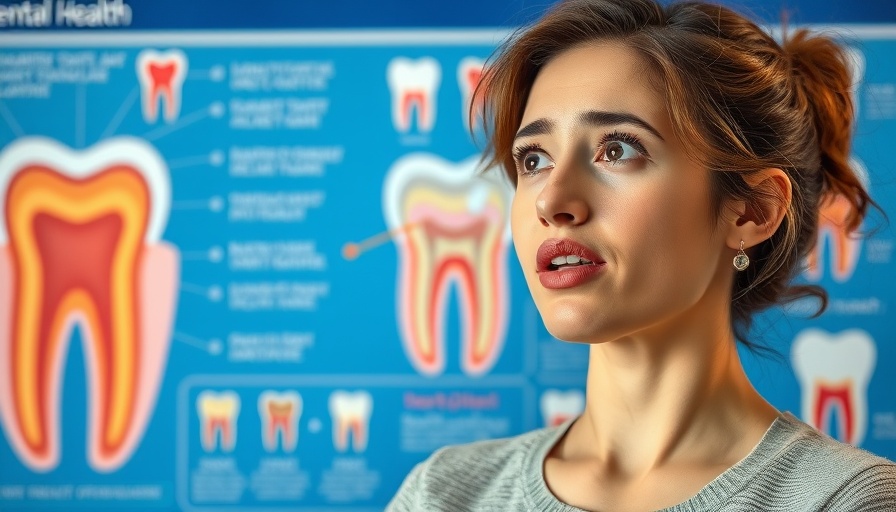
Conflicting Health Advice: Navigating the Maze of Online Information
In a world flooded with diverse health recommendations, it can be overwhelming to pinpoint which sources to trust. As healthcare professionals, we abide by evidence-based practices, yet countless anecdotes make their way onto social media feeds, often creating confusion. This article aims to shed light on navigating conflicting health advice, especially in the realm of dental care, where misinformation can lead to poor dental hygiene, misguided treatments, and ultimately, compromised health.
In Conflicting Health Advice on Social Media: Who Should You Believe?, the discussion dives into the complexities of health recommendations, exploring key insights that sparked deeper analysis on our end.
The Dangers of Anecdotal Evidence in Health Tips
Imagine hearing about a miraculous tea that helped someone lose weight and gain energy. While the individual's personal experience is valid, it doesn’t guarantee that similar results will occur for others. The complexities of individual health—like diet, lifestyle, and even genetics—play a massive role in how different people respond to various treatments. This gap in understanding makes relying on anecdotal evidence risky, particularly when such testimonials might mask underlying biases or financial incentives.
Identifying Conflicts of Interest
When assessing online health advice, always be vigilant about potential conflicts of interest. Are the individuals sharing these tips also peddling the products they recommend? This tactic, sometimes masked under the guise of genuine concern, raises red flags. Anyone offering specific dental or health recommendations should be clear about their affiliations. Transparency is key when considering the authenticity of the advice presented. For instance, if a dental influencer promotes a specific brand of whitening strips, it’s essential to uncover if they have a partnership with that brand. That knowledge can help you discern whether the recommendation is in your best interest or theirs.
Beware of “Quick Fixes” in Health and Dental Care
Another significant red flag is advice that appears too good to be true. Claims of immediate results, miraculous cures, or treatments that promise effortless solutions to complicated health issues should be approached with skepticism. In reality, effective health practices often require time, effort, and consistency—whether it's dental hygiene routines or overall wellness approaches.
The Role of Fear-Mongering
Fear-based tactics are often used to drive engagement in the saturated social media landscape, but they can do more harm than good. When misinformation circles, it can lead to anxiety and misguided decisions about one’s health. For instance, exaggerated claims about the dangers of certain dental practices or products can potentially deter individuals from seeking the proper care they need, paving the way for real complications.
Why Trusting Professionals Matters
Considering the vast array of conflicting health advice online, seeking counsel from qualified health providers is essential. Your dentist or healthcare provider is uniquely positioned to offer personalized, evidence-based guidance tailored to your unique health circumstances. They can clarify misconceptions, recommend suitable treatments, and most importantly, help you build an effective dental care plan.
Empower Yourself With Knowledge
As consumers of health information, embracing a proactive approach to your health is empowering. Engaging in credible dental education can greatly enhance your understanding of dental care and encourage you to make informed decisions. Whether it’s brushing techniques, flossing, or regular check-ups, being knowledgeable fosters a sense of ownership over your health and hygiene.
Conclusion: Prioritize Your Health Choices
The digital information age brings both opportunities and challenges. As you navigate conflicting health advice, focus on credible sources, seek transparency regarding potential conflicts of interest, and consult with healthcare professionals. This approach will not only protect your dental health but also enhance your overall well-being. Remember, prioritizing informed decisions today lays the groundwork for a healthier tomorrow.
To further your journey into maintaining a healthy smile, learn more about dental health tips from trusted sources, and make a plan to consult your healthcare provider. They are there to offer you the evidence-based support you need on your path to wellness.
 Add Row
Add Row  Add
Add 




Write A Comment